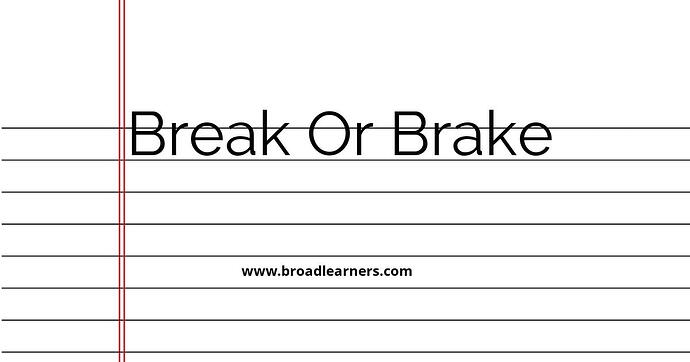'Break' and 'brake' are commonly confused words in English grammar. Understanding the difference between 'break' and 'brake' is important to use them correctly in written and spoken English.
'Break' is a verb that means to separate into pieces or to cause damage or injury. It can also mean to interrupt or stop the normal flow or continuity of something.
'Brake' is a noun or a verb that refers to a device used to slow down or stop a vehicle or a machine.
Let's take a closer look at the meanings and usage of 'break' and 'brake'.
| 'Break' | 'Brake' |
|---|---|
| The word 'break' is used to refer to actions such as separating into pieces, causing damage or injury, or interrupting something. | The word 'brake' is used to refer to a device used to slow down or stop a vehicle or a machine. |
|
|
To remember the difference between 'break' and 'brake', it can be helpful to associate 'break' with actions such as separating, damaging, or interrupting, while 'brake' is specifically related to slowing down or stopping a vehicle or a machine.
Here are some examples of correct usage:
- I need a break from studying. (referring to taking a rest)
- He used the emergency brake to stop the car. (referring to the device)
- The dancer's movements were so graceful, it seemed like time had taken a break. (referring to interrupting the flow)
- The cyclist applied the brakes to avoid a collision. (referring to the action of slowing down)
Remembering the correct usage of 'break' and 'brake' will improve your grammar and communication skills.
